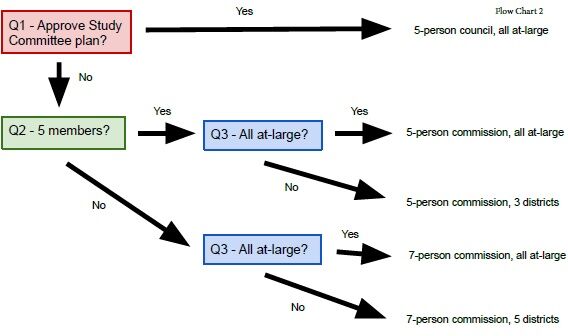Some information may be outdated.
Following the passage of three amendments at an Aug. 24 special meeting, the Grand County Council became the Grand County Commission and put two additional choices regarding the county’s future form of government on the ballot this November – though these new choices will only come into play if voters reject the form of government proposed by the Grand County Change of Form of Government Study Committee already slated to appear.
The amendments were put forth by Commissioner Curtis Wells.
The elected officials unanimously approved an amendment to the current form of government that removed non-partisan elections, term limits and recall elections, and acknowledged an “expanded commission” form of government status. These changes brought Grand County’s form of government into compliance with state law.
Grand County’s government was already functioning like an expanded commission, according to County Attorney Christina Sloan: the council held executive powers, even though it called itself a council. As a council, the elected body had tasked county administrator Chris Baird with many of those executive functions. It will continue to be able to do so under the label of a county commission – but the final executive authority still rests with the elected body.
The commission passed two resolutions to give voters more choices on Grand County’s future form of government, should voters reject the Grand County Change of Form of Government Study Committee’s proposal. The vote was 6-1, with Greg Halliday in opposition.
The change of government study committee was formed in 2018 after the state legislature passed H.B. 224, which mandated that all Utah counties conform to one of four forms of government. At the time, Grand County’s form of government did not comply. According to a process outlined in the law, a study committee was appointed to come up with a recommendation for a new form of government for the county that is in compliance with H.B. 224.
After months of community outreach, consultations with legal experts and extensive deliberations, the politically diverse study committee recommended a five-person council/manager form of government with all at-large seats. In the council/manager form of government, the executive power is held by a county manager, who is appointed by the council. The question of whether Grand County should adopt this form of government will appear on the ballot during the general election in November.
After the council’s actions, there will now also be two other questions on the ballot: one asks voters if they want to switch from the current seven seats to five; the other asks if they want to eliminate the current mix of district and at-large seats and instead elect all seats at-large.
If all three questions fail, the county will default not to a three-person commission (as it would have without the additional ballot questions) but would stay in its current expanded commission form.
If all of the questions pass, the study committee’s recommendation will trump the other questions, according to Sloan, and the county will become a five-person council with a manager and all seats at-large.
Wells had previously said that these new amendments do not change the work of the study committee.
“The citizens still have the opportunity to endorse their recommendation and vote ‘yes,’” he said.
More local gov choices put on ballot
Appreciate the coverage? Help keep local news alive.
Chip in to support the Moab Sun News.





